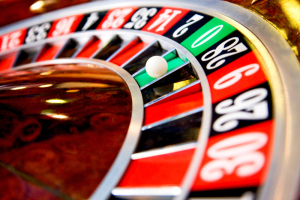Blaise’s Best Bet, Part 5: Pascal’s Wager
Blaise Pascal1 is probably best known for his presentation of the “wager argument.”2 Pascal’s friends who remained simultaneously unconvinced by the claims of atheism and Christianity were the intended audience for this voluntaristic argument (an appeal more to the human will than to reason itself).
Pascal believed that life’s existential realities force human beings to make decisions concerning such ultimate issues as what awaits one in death. The uncertainties and risks inherent in the human predicament oblige people to make up their minds about God’s existence.
What a person decides about this ultimate issue carries consequences in this life—and possibly in the next. For Pascal, the question of God’s existence and the truth of the Christian religion cannot be decided by an appeal to reason. He believed “there is too much to deny and too little to be sure.” So he wrote in the Pensées:3
…‘Either God is or he is not.’ But to which view shall we be inclined? Reason cannot decide this question. Infinite chaos separates us. At the far end of this infinite distance a coin is being spun which will come down heads or tails. How will you wager? Reason cannot make you chose either. Reason cannot prove either wrong.
…you must wager. There is no choice, you are already committed. Which will you choose then? Let us see: since a choice must be made, let us see which offers you the least interest.
Pascal saw two choices in the wager. The first is to bet on God by believing in Him and making a religious commitment (which for Pascal meant, of course, a commitment to Christ). Only two possible outcomes, Pascal posits, may result from wagering on God, yet one is definitely positive while the other isn’t clearly negative.

On the other hand, if a person believes in God and God does not actually exist, that person still really loses nothing. In terms of a cost-benefit analysis, the one who wagers for God has everything to gain and nothing to lose.
The second choice in Pascal’s wager is to bet against God by not believing in Him and refusing to make a religious commitment. Of course, one’s disbelief in God may be either correct or incorrect. But gambling on this choice, Pascal emphasizes, can still lead to only two possible outcomes—and neither is good.
If a person does not believe in God and God does not exist, then that person gains “nothing,” in Pascal’s words. On the other hand, if a person does not believe in God and God actually does exist, that person stands to lose everything.
The consequence for wagering incorrectly would involve an infinite loss (eternal exclusion from life with God, or hell). In terms of a cost-benefit analysis, the one who wagers against God has nothing to gain and everything to lose.
Given these two options, Pascal logically asserts that the prudent person should wager on God. For Pascal, adopting Christianity over atheism represents, at the very least, a rational choice. He writes:4
Let us weigh up the gain and the loss involved in calling heads that God exists. Let us assess the two cases: If you win you win everything, if you lose you lose nothing. Do not hesitate then; wager that he does exist.
Next week, I’ll wrap up this series with a deeper look into the details of Pascal’s wager and the Christian and skeptical response.
Endnotes
- For more on Pascal’s life, accomplishments, and faith, see the previous posts in the “Blaise’s Best Bet” series: parts 1, 2, 3, and 4.
- For a careful analysis of the strengths and weaknesses of Pascal’s wager, see Stephen T. Davis, God, Reason & Theistic Proofs (Grand Rapids: Eerdmans, 1997), 156–66.
- Blaise Pascal, Pensées, trans. A. J. Krailsheimer (London: Penguin Books, 1995), 122–23.
- Ibid., 123.






